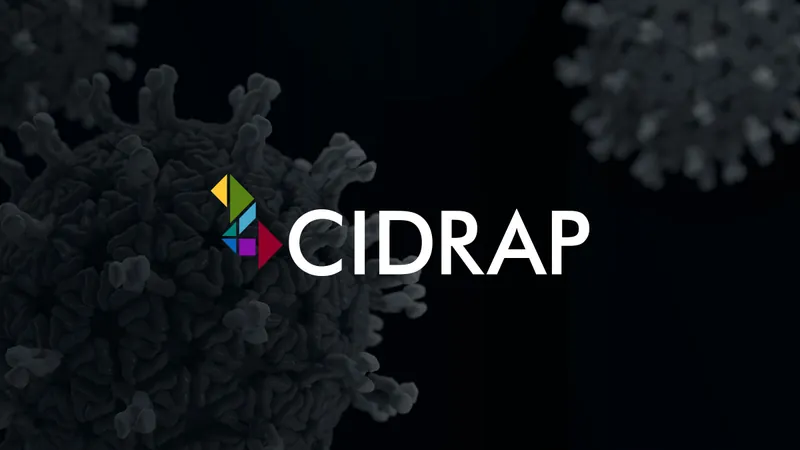
Unlocking the Psychology of Gaslighting: How Manipulators Distort Reality
2025-09-15
Author: Wei
The Dark Art of Gaslighting Unveiled
It can happen to anyone who dares to trust the wrong person. A groundbreaking study led by Willis Klein, a Ph.D. candidate at McGill University, reveals that gaslighting—an insidious form of psychological manipulation—can be better understood as a twisted learning process.
While gaslighting has sparked widespread conversation in recent years, Klein argues that a scientific examination is long overdue. His team, in collaboration with researchers from the University of Toronto, has introduced a novel theoretical model to decipher how manipulators lead their targets to doubt their very grasp on reality.
Gaslighting: A Learning Process?
Klein, the lead author of the illuminating paper titled "A Theoretical Framework for Studying the Phenomenon of Gaslighting," published in the Personality and Social Psychology Review, puts forth a striking idea: gaslighting operates on the principle of prediction error minimization (PEM). This concept explains how our minds work to interpret experiences and shape our expectations. To date, investigations into gaslighting have mostly lingered within old psychological frameworks, which, according to Klein, no longer resonate in contemporary psychology.
"When you trust or love someone, you naturally expect certain behaviors from them. However, gaslighters disrupt those expectations with unpredictable, atypical actions. They then manipulate that initial surprise to steer the victim’s perception and learning process," Klein elaborates.
Eroding Reality and Self-Trust
What makes gaslighting particularly devastating is not just the action itself, but the insidious narrative that unfolds. Gaslighters often implant the belief that the confusion stems from the victim's own perception of reality, leading them to feel "epistemically incompetent"—a crippling sense of doubt about their understanding of the world.
Klein notes, "This cycle repeats until the victim is made to internalize the belief that they cannot trust their own judgment, effectively eroding their sense of reality piece by piece."
Why Anyone Can Fall Victim
The researchers emphasize that gaslighting can ensnare anyone—including those who might seem strong or self-aware. How? Our innate reliance on close relationships to define our sense of self sets the stage for vulnerability. Klein insists that "there’s nothing inherently unique about the target that makes them susceptible. It merely requires trusting the wrong person."
Future investigations might shed light on individual traits that heighten susceptibility, such as attachment styles or past traumas. Klein's hope is that ongoing research will validate their model and pave the way for effective support systems for those who have endured the torment of gaslighting.
A Call for Awareness and Understanding
As awareness of gaslighting grows, this research represents a vital step toward demystifying the phenomenon. By viewing gaslighting through the lens of a learning process, we can equip individuals with the tools needed to recognize manipulation and regain their sense of reality. Klein’s insights not only shine a light on the mechanics of gaslighting but also serve as a clarion call for further exploration into the complex dance between trust, reality, and self-perception.





 Brasil (PT)
Brasil (PT)
 Canada (EN)
Canada (EN)
 Chile (ES)
Chile (ES)
 Česko (CS)
Česko (CS)
 대한민국 (KO)
대한민국 (KO)
 España (ES)
España (ES)
 France (FR)
France (FR)
 Hong Kong (EN)
Hong Kong (EN)
 Italia (IT)
Italia (IT)
 日本 (JA)
日本 (JA)
 Magyarország (HU)
Magyarország (HU)
 Norge (NO)
Norge (NO)
 Polska (PL)
Polska (PL)
 Schweiz (DE)
Schweiz (DE)
 Singapore (EN)
Singapore (EN)
 Sverige (SV)
Sverige (SV)
 Suomi (FI)
Suomi (FI)
 Türkiye (TR)
Türkiye (TR)
 الإمارات العربية المتحدة (AR)
الإمارات العربية المتحدة (AR)